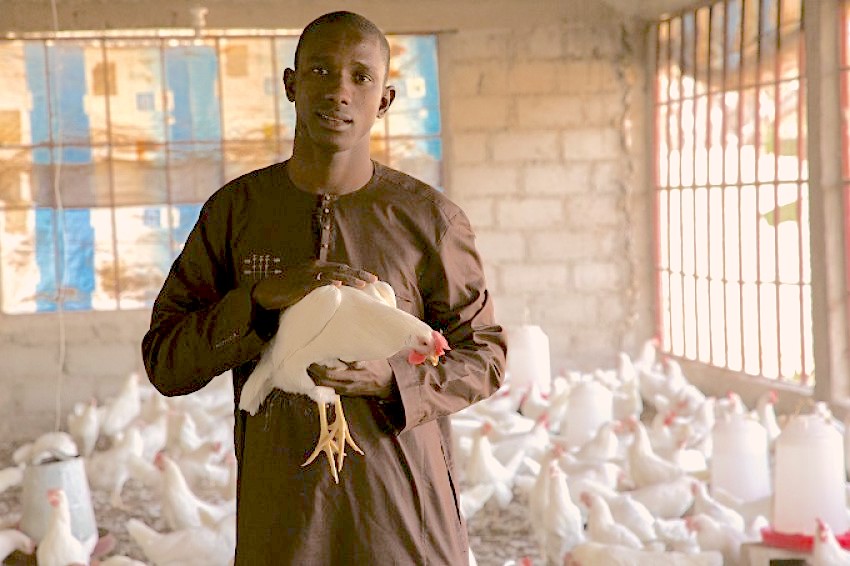Gambiaj.com – (BANJULINDING) – A recent report by Jason Toussaint, an ethical animal welfare advocate based in Banjulinding, has revealed that The Gambia’s poultry industry faces significant challenges despite its importance to the country’s economy. In 2022, Gambia imported $40.1k worth of poultry, ranking it as the 177th largest importer globally. The Netherlands and France were the primary sources of these imports.
Jason’s investigation aims to promote policies that protect the rights and interests of Gambian poultry producers and consumers. It highlights the impact of imported frozen chicken meat and eggs on local producers, including business closures and job losses.
The complexities and hurdles in local poultry business
Gambia’s poultry farming sector comprises communal or backyard farms, small-medium scale producers, and commercial farms.
These farms face various challenges such as high mortality rates, lack of feed and day-old chicks, poor infrastructure, diseases, and limited research support.
The industry’s major customers are hotels, restaurants, and the general public, with most broilers purchased by the public. However, local producers face constraints such as inadequate inputs and support services, competition with cheap imports, weak producer associations, and pests and diseases.
The study reveals that 77% of poultry vendors target particular times of the year, such as the tourist season and Muslim and Christian religious holidays. However, only 22% of them receive assistance or guidance from the Department of Livestock Services (DLS). Although 40% of the respondents questioned the advantages of such membership, 56% of the respondents are members of poultry associations.
Local businesses face challenges due to low-cost import competition and a lack of support services and inputs. Imported poultry inputs affect production costs and supply reliability, while weak producer associations, pests, diseases, and inadequate input and support services impede growth.
The competition with cheap imports is significant as it deprives local producers of a major proportion of the domestic market.
Local producers are therefore calling for protection against cheap imports until the industry becomes self-sufficient. They also emphasize the need to invest in domestic supply chains for day-old chicks, poultry feed, and vaccines to reduce reliance on imports.
The challenges faced by Gambia’s poultry industry highlight the need for government support and investment to strengthen the sector, create employment opportunities, and enhance food security.










